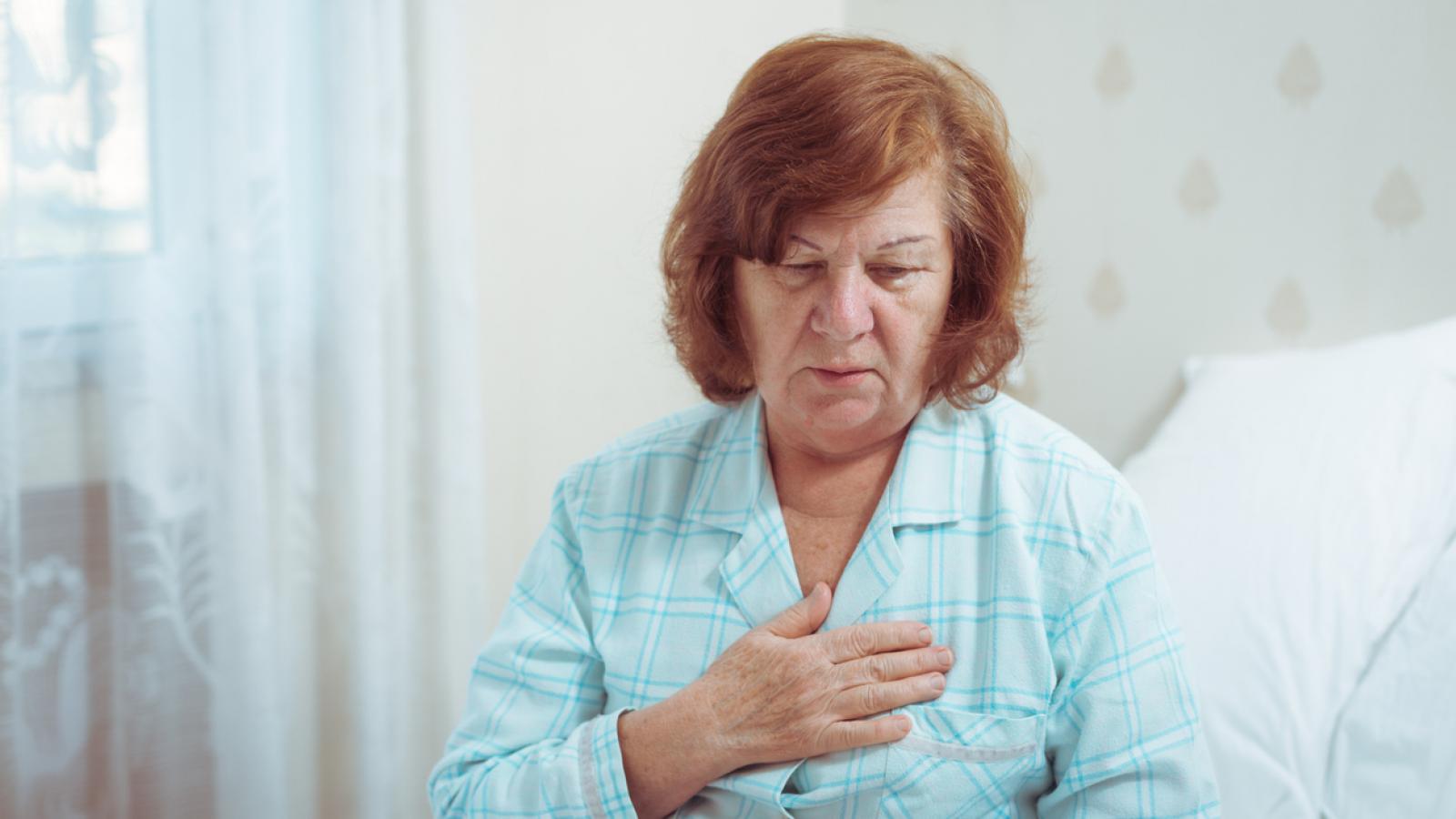Breathlessness

What is it?
Feeling that you can’t breathe normally or that breathing is tiring and difficult. You are aware of a change to your normal breathing. Breathlessness can range from mild to severe. Shortness of breath (dyspnoea) can be very uncomfortable and distressing. Tell your doctor if you feel breathless, so they can find out the cause of your breathlessness and help to treat it. Some hospitals have special clinics to help with breathlessness.
What causes breathlessness?
- Respiratory infections
- Diseased lungs, e.g. due to lung cancer or mesothelioma
- Damaged lungs, e.g. due to radiotherapy, chemotherapy or other drug therapies
- Removal of some lung tissue, e.g. surgery for lung cancer
- Inflammation of your lungs
- Infection
- Fluid around your lungs (pleural effusion)
- Fluid in your abdomen (ascites)
- Lung clots
- Panic or anxiety
- Lack of physical fitness
- Being overweight
- Emphysema/COPD
- Anaemia
- Thyroid problems
- Heart conditions
- Muscle weakness
- Smoking
In rare cases, the drug bleomycin may cause inflammation of the lungs. This can lead to shortness of breath. Your doctors will check your lungs before, during and after treatment. If you notice a change in your breathing, tell your doctor as soon as possible. They may stop or reduce the amount of the medication. Not smoking will help to reduce the risk of this happening to you.
If you are a scuba diver, talk to your doctor about any possible risks associated with bleomycin treatment. If you are having an anaesthetic for an operation, make sure to tell your anaesthetist if you had bleomycin treatment.
In rare cases, the drug bleomycin may cause inflammation of the lungs. This can lead to
shortness of breath. Your doctors will check your lungs before, during and after treatment. If you notice a change in your breathing, tell your doctor as soon as possible. They may stop or reduce the amount of the medication. Not smoking will help to reduce the risk of this happening to you.
If you are a scuba diver, talk to your doctor about any possible risks of this associated with bleomycin treatment. If you need an anaesthetic for an operation after having had bleomycin, make sure you tell your anaesthetist you've had the treatment.
What are the symptoms of breathlessness?
The symptoms of breathlessness vary from person to person it is whatever you experience as the feeling of being short of breath. Sometimes it may not be visible to the person looking at you. You may experience:
- Difficulty catching your breath
- Noisy breathing
- Fast, shallow breathing
- Wheezing
- Chest pain
Other symptoms include:
- Pale or blue skin, especially around your mouth
- Increase in your pulse rate
- Cold or clammy skin
- Flared nostrils when you breathe in
- Feeling anxious
- Using your shoulders and chest to breathe in
What should I do if I have symptoms?
Talk with your doctor if you feel you have these symptoms and they can investigate what might be causing it.
What tests might I have?
To treat breathlessness, your doctor will need to know what’s causing it. You may need some of the following tests:
- Chest X-ray. A chest X-ray can check your lungs for signs of infection, damage or a build-up of fluid.
- Blood test. A blood test can give your doctor more information about your breathlessness and what is causing it.
- Pulmonary function tests (breathing tests). Pulmonary function tests measure how well your lungs work.
- CT scan. A CT scan gives a more accurate picture of what is going on inside your body. It does this by taking many X-rays at different angles. A CT scan can help to find disease and any build-up of fluid throughout your body.
How is breathlessness treated?
Treatment depends on what’s causing the problem.
- Blood transfusion. If you’re breathless because you have a low red blood cell count (anaemia), having an infusion of blood can make you feel better
- Antibiotics. If you’re breathless due to a chest infection, you may need antibiotics to clear it up and improve your breathing.
- Medication. Medications such as painkillers, steroids and sedatives can be used to slow down and relax your breathing. Your doctor will decide on what is best for you.
- Oxygen. Your doctor may decide that you need oxygen regularly. The public health nurse can help to arrange home oxygen for you. Mobile oxygen cylinders are also available so that you are free to live life as normal as possible. Ask for extra tubing so that you can move around freely while on your oxygen.
- Breathing exercises. Some of the best treatments for breathlessness are simple breathing exercises. Your doctor may refer you to a physiotherapist who can teach them to you. The exercises help you to control your breathing, no matter how fast or shallow you breathe. Read more about breathing exercises.
- Pleural fluid aspiration. This means removing fluid on your lung. This is done by putting a small tube into your chest under local anaesthetic, which is removed once the fluid has drained.
- Pleurodesis. This means putting medication into your chest through a tube to make the linings of your lungs stick together. This means there is no space between the layer where fluid can build up.
- Chemotherapy or radiotherapy. If a tumour is causing your breathlessness, chemotherapy or radiotherapy can shrink it and so improve your breathing.

Tips to help with breathlessness
- Ask the hospital physiotherapist or nurse to show you some breathing exercises that will help to strengthen your muscles used in breathing. Follow any exercise plan they recommend.
- The physiotherapist can also show you ways to sit that will increase the amount of air you can take into your body.
- You may find that you sleep better in a comfortable chair than in a bed.
- Avoid doing things that increase your shortness of breath, such as bending over and climbing flights of stairs. Take your time getting dressed and wear clothes and shoes that are easy to put on.
- Anxiety can make a breathing problem seem much worse, so a quiet setting can really help. Listen to relaxing music too.
- If you are anxious and upset, ask to speak to a counsellor about your feelings – it may help.
If you are feeling breathless or notice any change in your breathing, tell your doctor. It is important your doctor finds out the cause of your breathlessness. That way they can treat it properly. We also have advice on coping with an episode of breathlessness and what to do in an emergency.
Who can help me?
There are many people who can help you to manage your breathlessness. These include the cancer liaison nurse, physiotherapist and occupational therapist. Some centres have special breathlessness clinics so your doctor can also refer you to one of these.
Your cancer doctor (oncologist) may refer you to the palliative care team to help you manage this symptom. These doctors and nurses specialise in controlling your symptoms and improving your quality of life. Breathlessness can be a very common complaint for many patients with cancer.
For more information
Phone
1800 200 700



